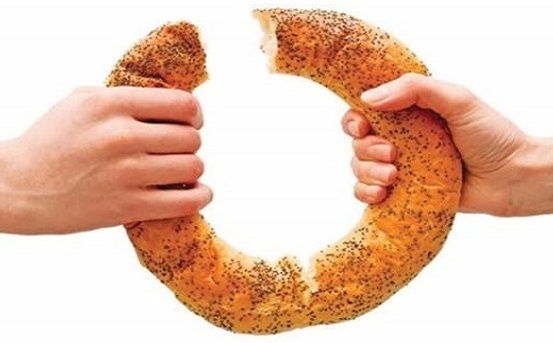The Prophet always referred to himself as a mediator of charity, with a constant emphasis that it is Allah, glory unto Him, who is the Real Giver and Owner of all.
Still not a Muslim, Safwan ibn Umayya, one of the nota bles of Quraysh, accompanied the Messenger of Allah in the campaigns of Hunayn and Taif. Observing the noticeable wonder with which Safwan was gazing at a particular batch of the war spoils gathered at Jiranah, the Noble Messenger asked him:
"Do you really like them?''

And when Safwan replied in the positive, the Prophet said:
"Take them... It's all yours!"
Thereupon, unable to hold back his excitement, Safwan exclaimed:
"No heart other than a Prophet's can be that generous", before following it up with the Word of Faith and becoming a Muslim,1
Once he returned to his tribe, he was quick to declare: "Run, my people, to accept Islam... for Muhammad
donates abundantly without the tiniest fear of poverty and need!" (Muslim, Fadail, 57-58; Ahmad, III, 107)
Once, another person came by and asked something from the Prophet fl who had nothing to give at the time. But the Prophet fl, nonetheless, told the man to find a loan, assuring him that he would pay it off on his behalf. (Haythami, x, 242) 2
In the spirit of his ancestor Ibrahim I, the Prophet of Grace fl would never have a meal alone, without guests. He would either sponsor the debts of the deceased, or find suit- able sponsors, refusing to perform their funeral salat before their dues were paid off.
"A generous person is closer to Allah, to Paradise and to people, and distant to the flames of Hell. But a miser is distant to Allah, to Paradise and to people and close to Hellfire" he has stated. (Tirmidhi, Birr, 40/1961)
In another hadith he states:
"Two traits never come together in a true Muslim: Miserliness and bad morals..." (Tirmidhi, Birr, 41/1962)
.
.
1. Waqidi, Magazi, Beirut 1989, II, 854-855.
2. Also see, Abu Dawud, Haraj, 33-35/3055; Ibn Hibban, Sahih, Bei rut, 1993, XIV, 262-264.

Yeni yorum ekle